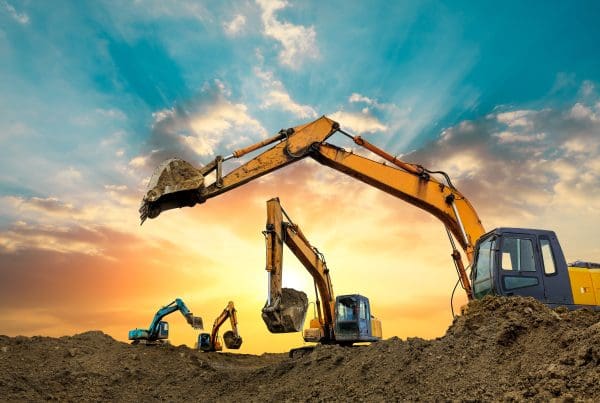商用车
2022-03-10
锂矿开采破坏沙漠,但为何我们仍要这么做?

Jamie Fox
Jamie拥有超过15年行业研究经验,研究范围涵盖了商用车及其动力总成零部件系统。他拥有物理学和天文学学士学位,以及纳米科学与技术硕士学位。Jamie目前在智利工作。
According to an article by CNN last year, digging up lithium for electric vehicles may be bad news for “Tiehm’s buckwheat”. The Guardian at the end of 2020 did a piece about the damaging effects of lithium mining saying that water in Chile: “may become contaminated.”
Personally, I am more concerned about the effects of climate change and pollution on human beings, than I am about Tiehm’s buckwheat. Articles like these examples from CNN and the UK’s The Guardian sometimes really frustrate me because they are grist to the mill of the “anti-net-zero” campaigners. At the very least, it’s important to note that the mining company in question says it is going to major efforts to relocate the buckwheat so it can survive. Contaminated water also of course doesn’t sound great, but if we don’t change from fossil fuels to electric machines then intensifying droughts from climate change may leave some people worrying about whether they will have any water at all. The focus needs to be on how the mining company can mine without contaminating the water, rather than implying that the mine should be stopped.
Oil Is Worse
I appreciate that there is a sort of irony at the heart of the fact that mining something that’s supposed to help the environment also damages the environment. But I’ve seen so many articles like these, criticising some aspect of electric vehicle production, while not properly putting that in the context of how much worse the impacts of climate change will be if we don’t go quickly to electric vehicles: famine, disease, natural disasters, sea level rise etc. I wish these (usually well-meaning) journalists would put much more emphasis on the idea that we need to prevent contamination while still mining the lithium. Otherwise, for a lot of people, these articles are just a good excuse to do nothing at all about climate change. Every time I see one of these pieces, I imagine a fossil fuel company CEO having a good laugh and telling their PR department to take the day off since someone has already done their job for them.
Climate change is just the start of oil’s sins. Burning oil contributes towards the millions of lives lost from air pollution. Shell had to pay millions in compensation over the case of murdered activists in Nigeria. At Deepwater Horizon, BP caused the biggest marine oil spill in history as well as an explosion that killed eleven people. Oil has arguably been the key factor in Venezuela almost completely falling apart as a country. Russia’s war in Ukraine arguably might not have occurred if it hasn’t been for the about $100 billion a year the rest of the world sent them for oil which has helped strengthen their economy and military.
And yet while the impacts of battery production seem closely related to electric cars in people’s minds I wonder if we sometimes tend to dissociate oil from vehicles. You probably didn’t think about your vehicles when you heard stories about Deepwater Horizon, or Venezuela.
You do have to mine and trash the planet a bit to produce any type of vehicle. But once an electric one is built, very little further mining is required. ICE vehicles (internal combustion engine, so petrol and diesel) require continual extraction (of oil) throughout their entire life to keep them going.
Not Your Fault
I don’t write any of this to make people feel guilty about their ICE commercial fleets, or private cars. We are all in the fossil fuel economy for now. We all know that many of the miles driven throughout the 2020s will be with oil. I myself have driven and flown many oil-powered miles in my life, leading to many fond memories. But, as we plan for the future, we need to avoid the idea that electric vehicles are only slightly better than ICE vehicles from an ethical and environmental perspective. They are MUCH better and the more people that know this the faster they will all be motivated to help us get to where we need to be.
Local Voices Matter
In addition, too much focus on the negative impacts of electric vehicles, the other issue I have with the media in this area is that it is often Western voices questioning the damage to the desert. Local voices are either not mentioned, or typically represented only by an environmental activist who often doesn’t reflect mainstream opinion, such as Ramón Balcázar in the Chile article from the Guardian above.
Here in Chile, where I live, there is political debate about how best to fairly distribute the lithium wealth including whether lithium extraction should be privatized or a public good, and how best to distribute the wealth. But there isn’t really a debate about whether to extract it or not.
Watch the woman in this video featured in Clean Technica (scroll down as what you see first is actually a photo) talk about suffering and poverty in Bolivia and how she and her neighbours haven’t benefited from lithium extraction. As far as I can tell, her concern appears to be not with the impact on the environment but on a fair distribution of the wealth. My guess is that she speaks for many others in regions with lithium reserves.
Let’s Save Humanity Now (and fix mining issues as we go)
There are many valid concerns about lithium mining, not to mention cobalt, battery recycling, and other issues with electric vehicles that I didn’t address in this article. But let’s fix these issues as we go, and not let them slow down the extraction. Our primary focus should be extracting as much of what we need as fast as possible. Every day’s delay is more power to Putin, more pollution, and more climate change.
In the meantime, fleet buyers can put pressure on mining companies by requiring that their suppliers use only sustainably sourced lithium. And let’s not forget that many mining companies have net zero ambitions, and are striving to move onto zero emission machinery. In the case of lithium mines, maybe we should focus on that.
To discuss this topic further contact Principal Analyst Jamie directly at: jamie.fox@interactanalysis.com
其他商用车领域洞察

非道路领域是否已迎来高性能计算平台时代?

2024年,巴西挖掘机进口五倍于出口
